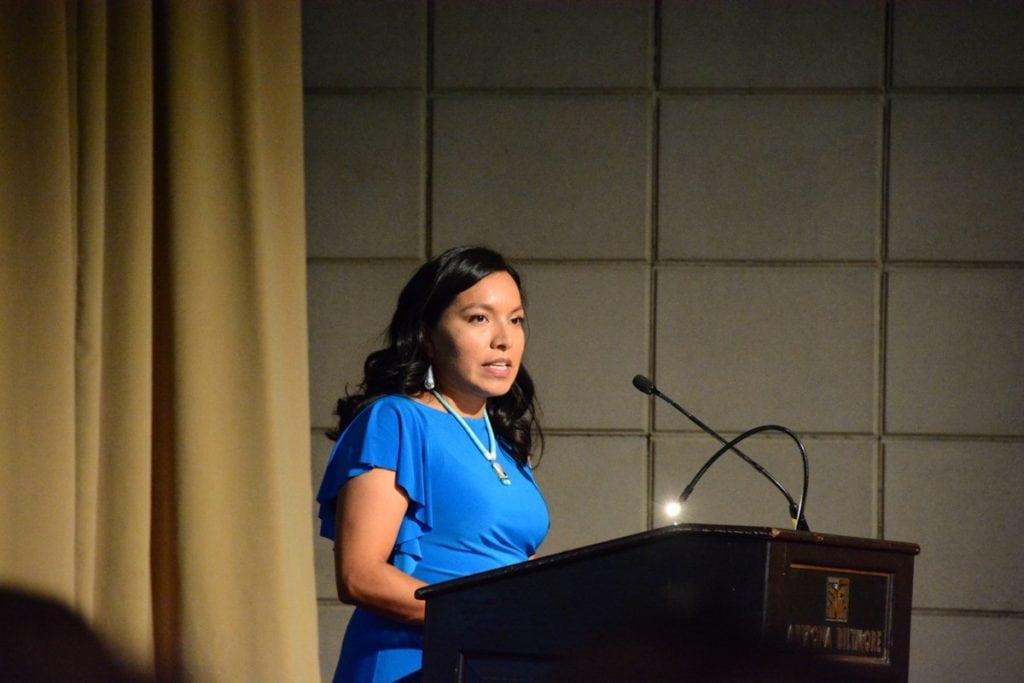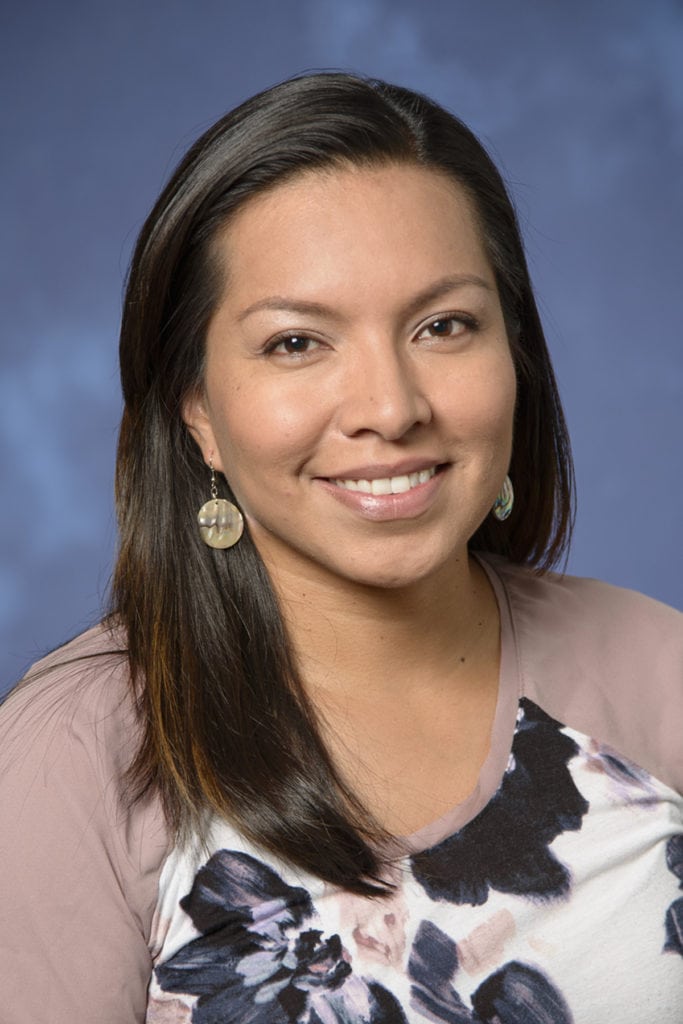
By Brian Powell
Flinn Foundation
Jennifer Richards may be approaching 20 years since graduating from Tuba City High School, but her dedication to her community–and especially its health—has never faltered.
The Class of 2000 Flinn Scholar, who earlier this year was a member of the committee that selected the 2018 Flinn Scholars, has spent the past five years as a research associate for Johns Hopkins Center for American Indian Health. The center has an office in Tuba City—about 80 miles north of Flagstaff—and works throughout the Navajo Nation and across the United States.
In her role, Richards has trained more than 100 community health workers in about 10 states and helped oversee the Tuba City implementation of the “Together on Diabetes” project, which seeks to prevent health disparities by focusing on youth behavior.
And she has advocated for money from the Navajo Nation’s $554 million settlement with the federal government over the mismanagement of tribal resources to be used in part to improve health by creating trails and bike lanes, offering lessons about growing food, and ensuring all health-promotion facilities are functioning and accessible to the public.
“I’ve always wanted to see the health of my people improve,” Richards says.
She has been traveling to the Navajo Nation, including Tuba City, Chinle, and Window Rock, from her home in Tucson at least twice a month for the past several months to conduct research for her Doctor of Public Health (DrPH), interviewing traditional healers and elders. Richards is hoping to earn her degree from the University of Arizona in 2019.
Richards is developing a health curriculum for young girls to learn alongside their mother or other female adult family member that will be culturally appropriate and capitalize on cultural strengths and assets.
“Knowing who we are as Native Americans and having a strong sense of identity, the more respect you will have for yourself, the better you will treat yourself and others,” Richards says.
Richards, who talks fondly of the family, friends, and gatherings of her childhood, ran varsity cross country for four years on state championship teams at Tuba City High School. She also ran track and played basketball.
“Running is a spiritual event for us,” she says. “As Navajo people we are always taught to get up early and greet the sun by running at that time. My grandma always told me to run everywhere.”
On the academic side in high school, Richards spent three summers at the rigorous Math and Science for Minority Students program at Phillips Academy in Andover, Mass., which she said prepared her well for the Flinn Scholarship.

The Flinn Experience
Richards says she traveled extensively around the western United States for pow wows and rodeos as a young person, but had never been abroad before going to college.
“I was terrified, but I had such a great experience with that first trip with the other Flinns,” says Richards, who went to Hungary and Romania for the summer seminar series after freshman year. Today, the Flinn Scholars travel to Beijing and rural China as a group after their first year.
She went on to travel on her own to England, France, Switzerland, and Italy as part of her business studies at Arizona State University.
“It was great to have a community of Flinn Scholars with the same priorities who wanted to enjoy their undergraduate experience and do well academically, but also it was really special to travel with them and experience new places,” Richards says.
Richards graduated from ASU with a bachelor’s degree in business administration, and later earned a master’s degree from UA in public health.
Giving Back
Richards was chosen by the Flinn Foundation as one of five people for the Flinn Scholars Class of 2018 Selection Committee. Forty finalists, who advanced from the 881 students that applied for the 2018 Scholarship, were interviewed by the five Arizona community leaders charged with the challenging task of selecting approximately 20 recipients.
“It was a huge honor and extra special because I knew exactly what those young kids were going through,” Richards says. “Every one of those kids is going to go far. It was really motivating but also extremely difficult, because every single one deserved a Flinn Scholarship.”
Richards was impressed that the finalists were all civically minded and committed to community service in addition to being outstanding students.
“They all were so passionate about whatever their interests were, and they were all different interests. I left feeling so excited and motivated that Arizona is going to be OK,” she says.
In May at the annual Flinn Scholars Recognition Luncheon at the Arizona Biltmore, Richards addressed the crowd of incoming Scholars, their parents and honored educators, as well as the outgoing Scholars graduating this year from an Arizona public university.
Richards plans to stay involved with the Flinn Scholars Program, offering to make presentations about the program in her hometown and being a resource for high school students from any tribal community who advance to in-person interviews.
“We have kids going to Ivy League schools, and I think if they know the Flinn Scholarship is an option, transition-wise it might be a great fit for them,” Richards says.
Learn more about the Flinn Scholars program at www.flinnscholars.org or send questions to flinnscholars@flinn.org.
Read more about our Flinn Scholars